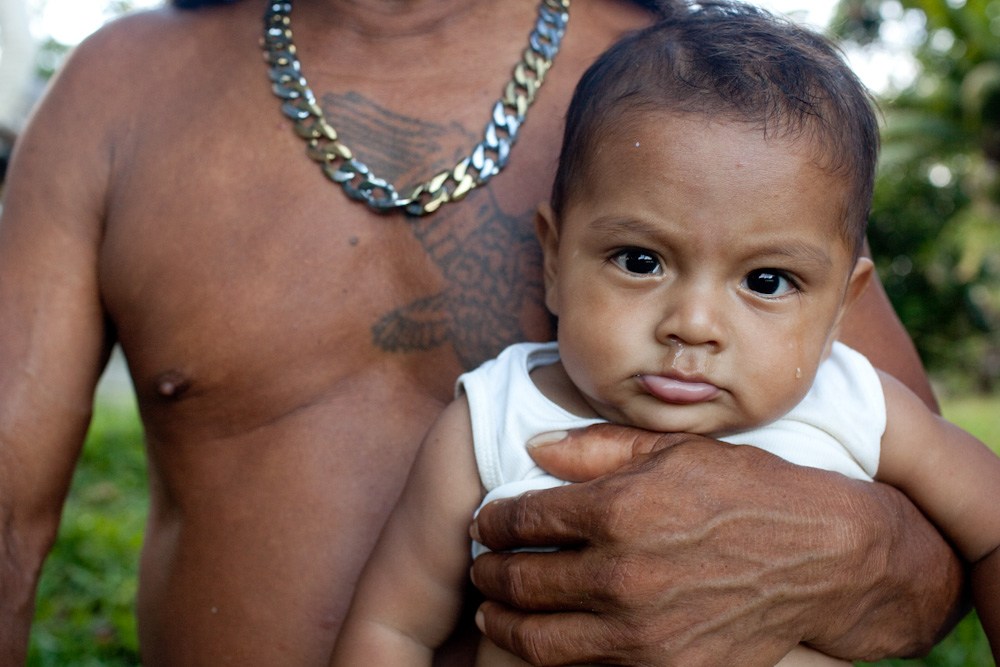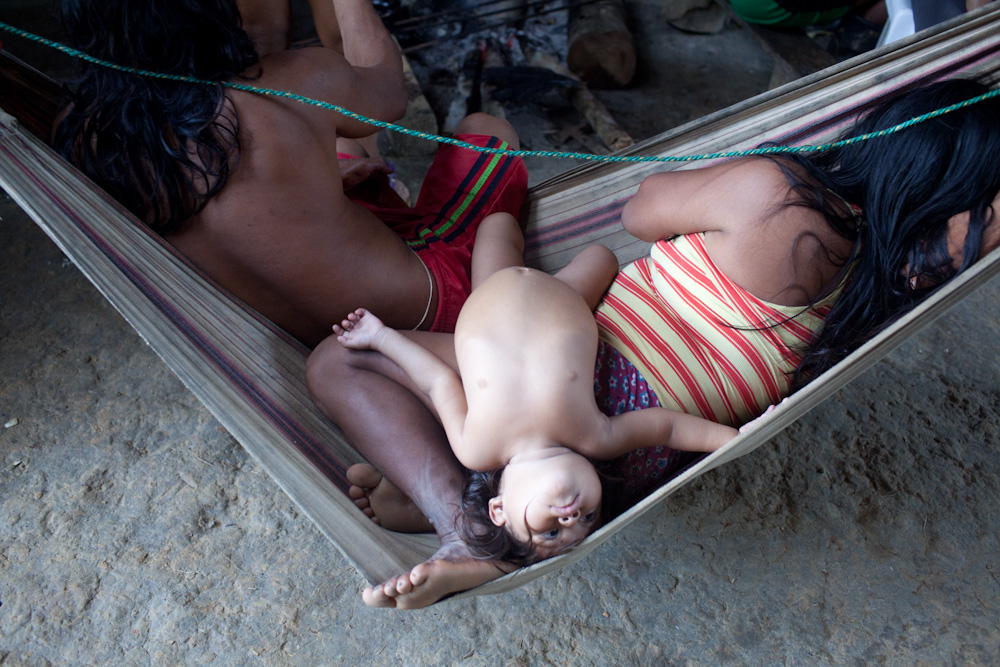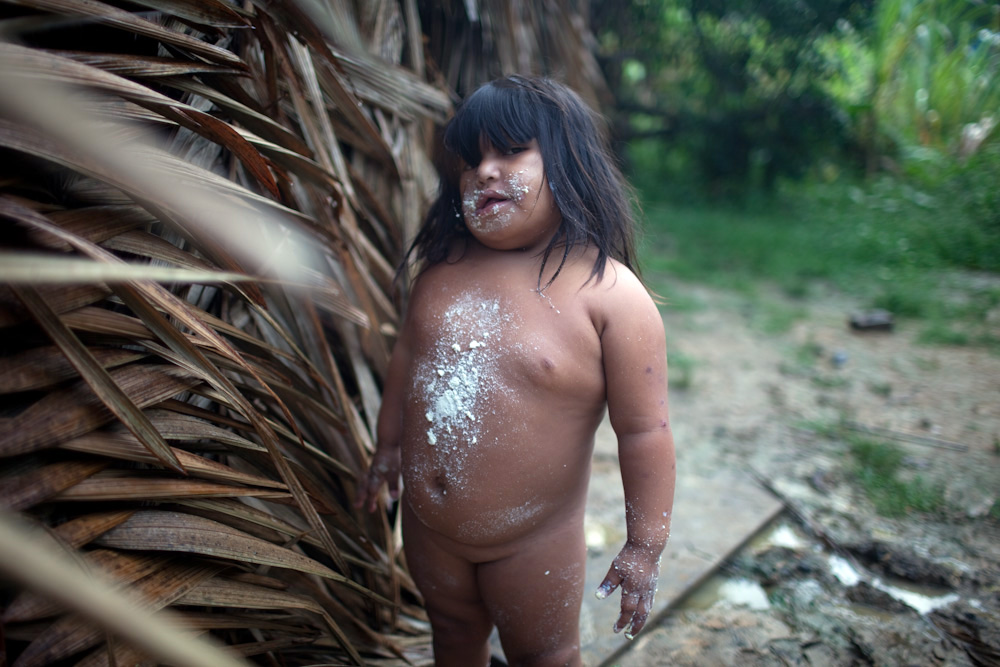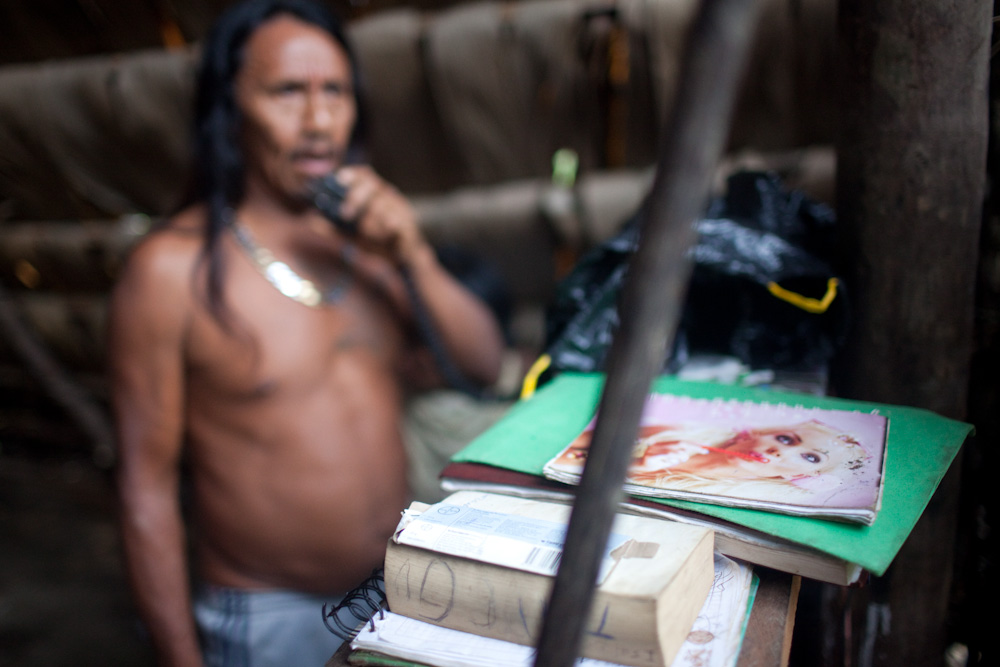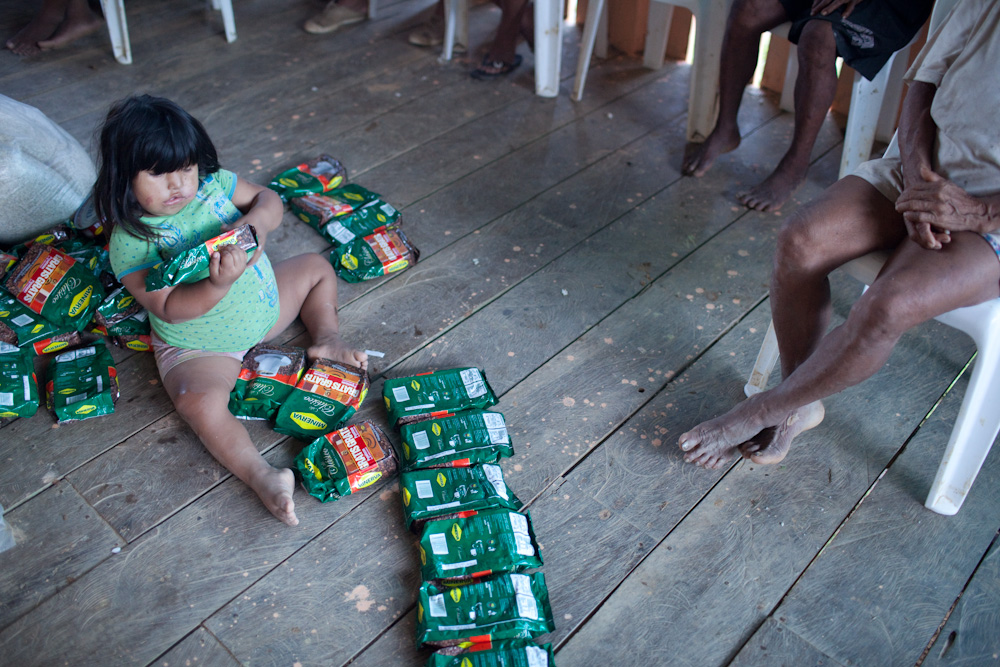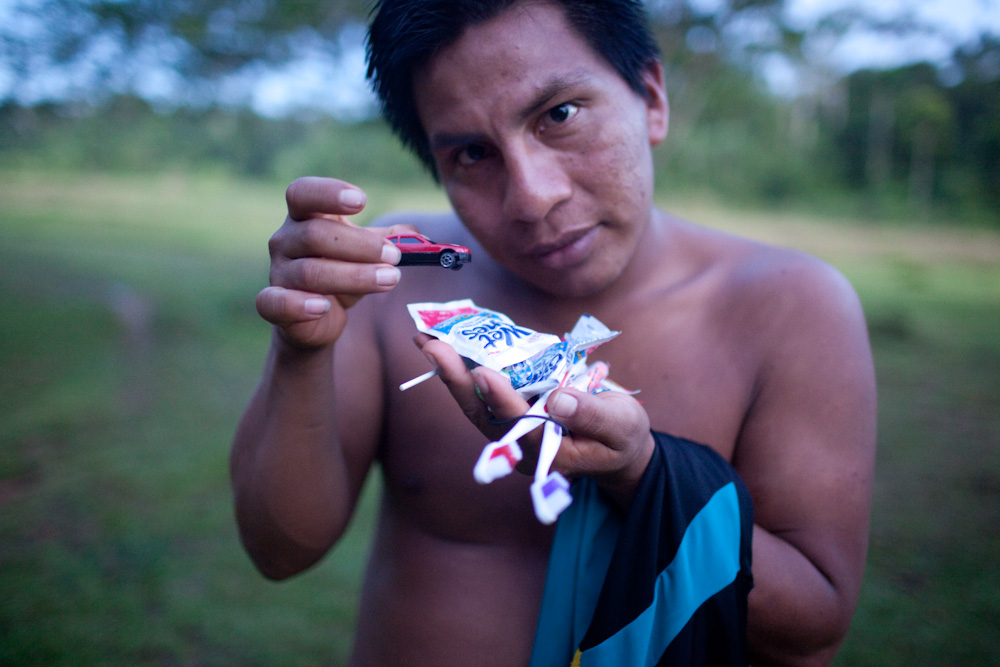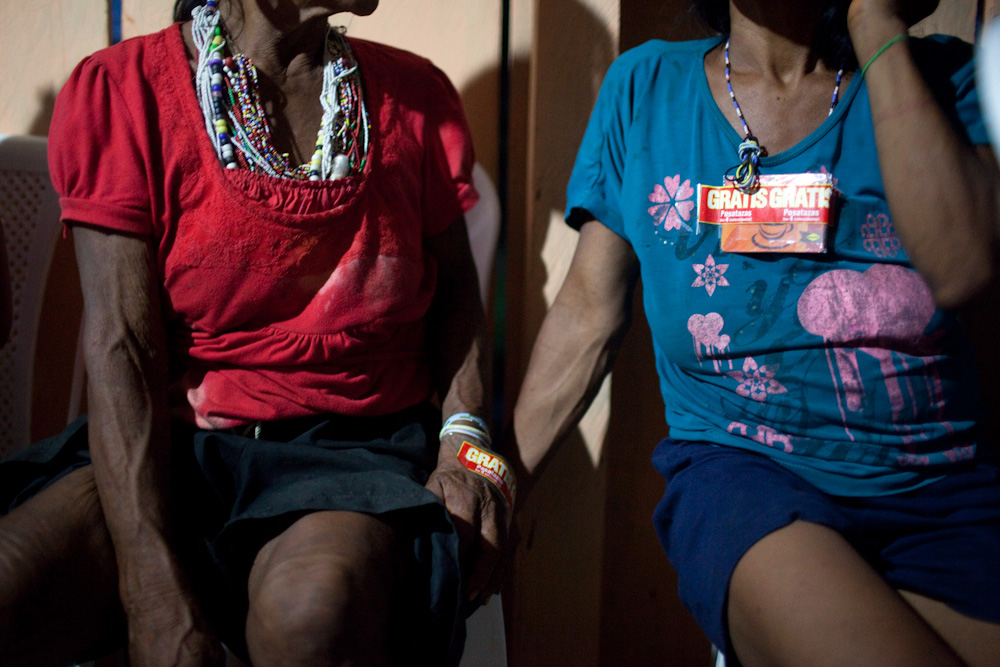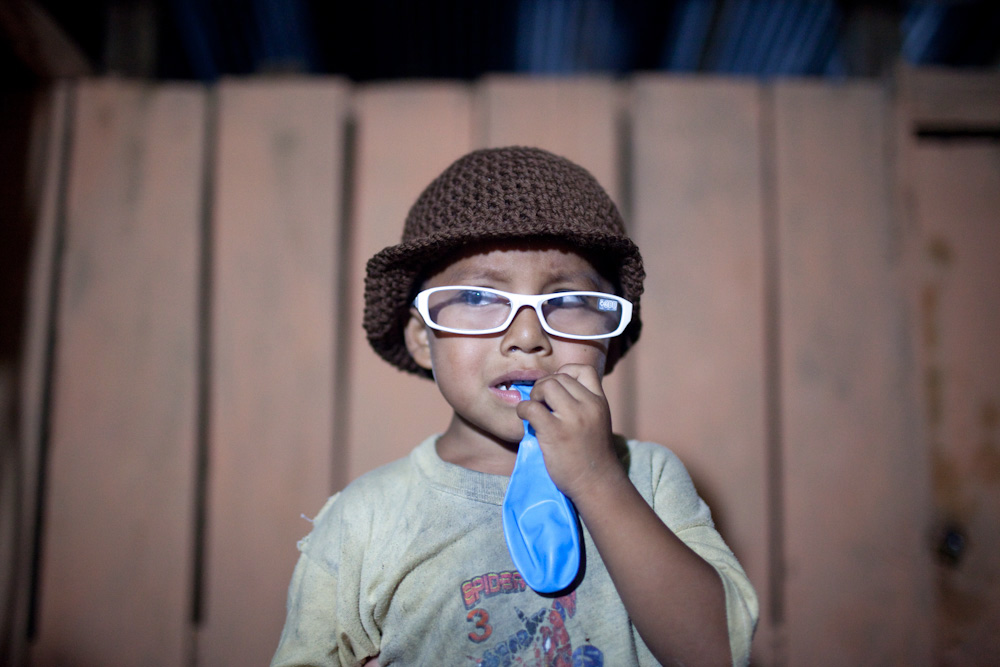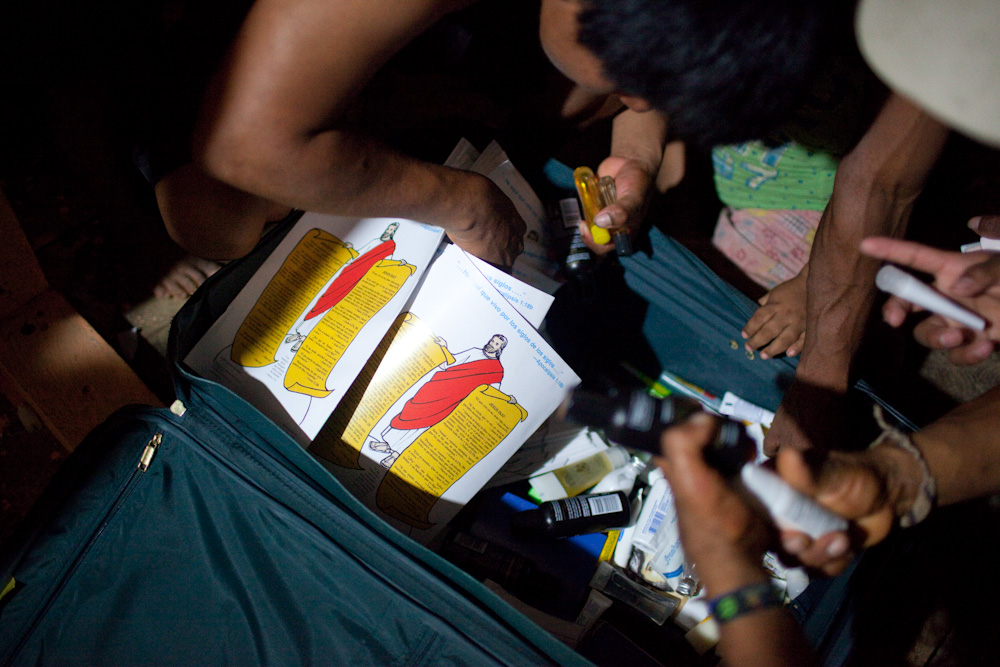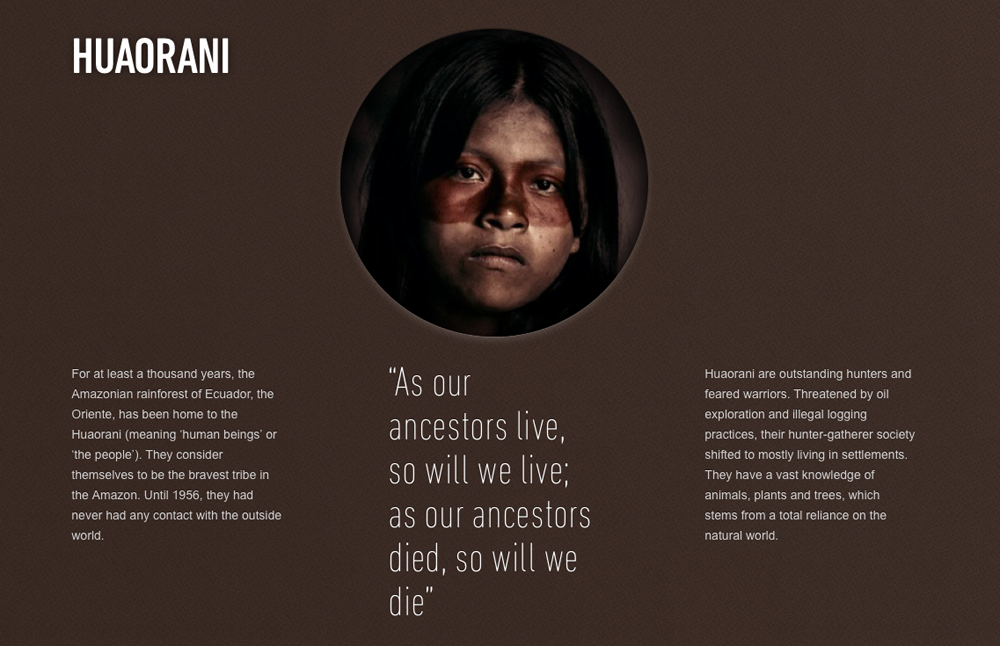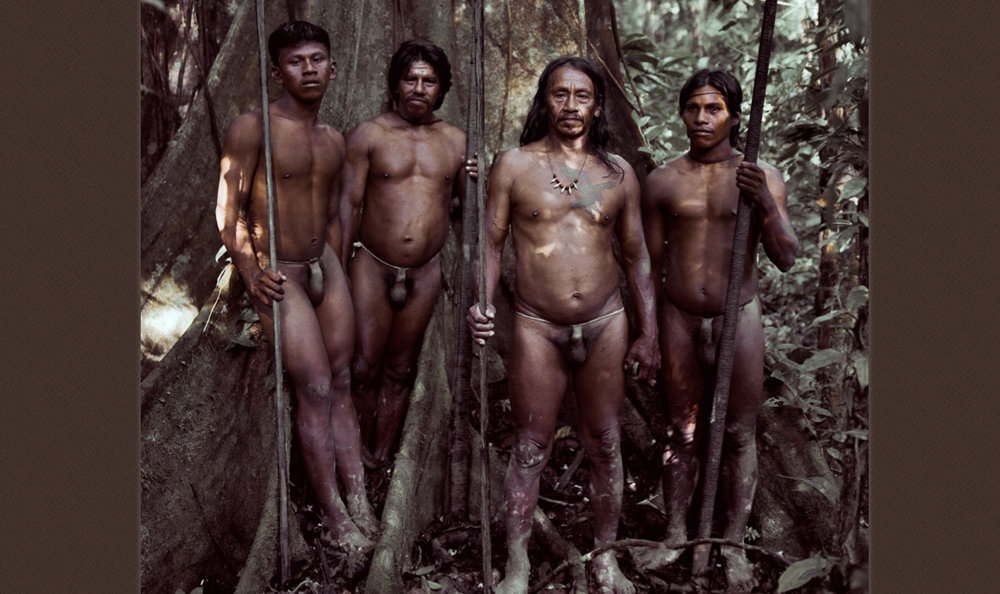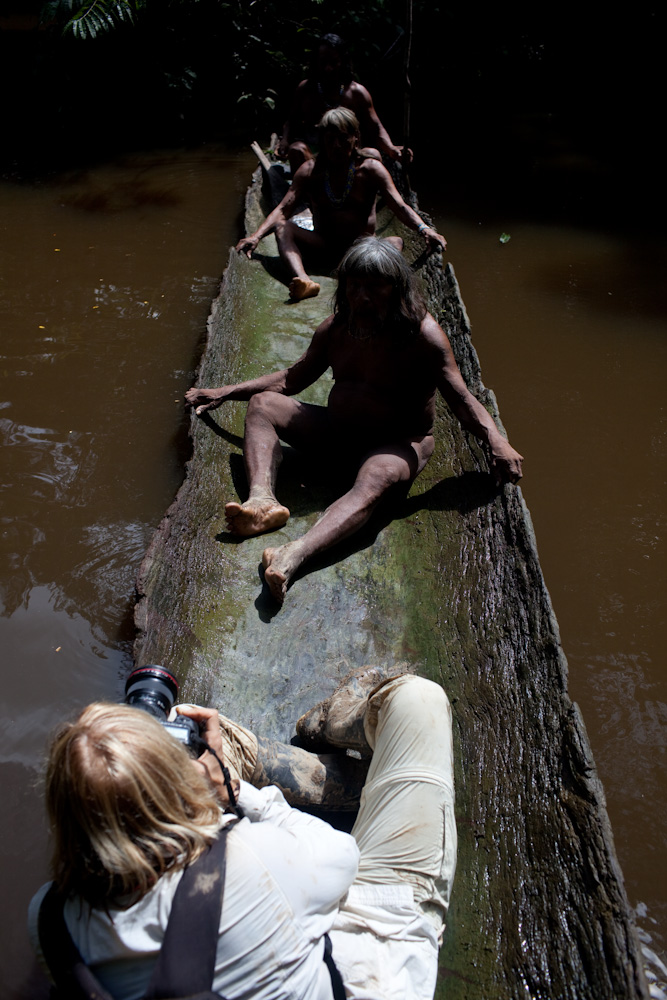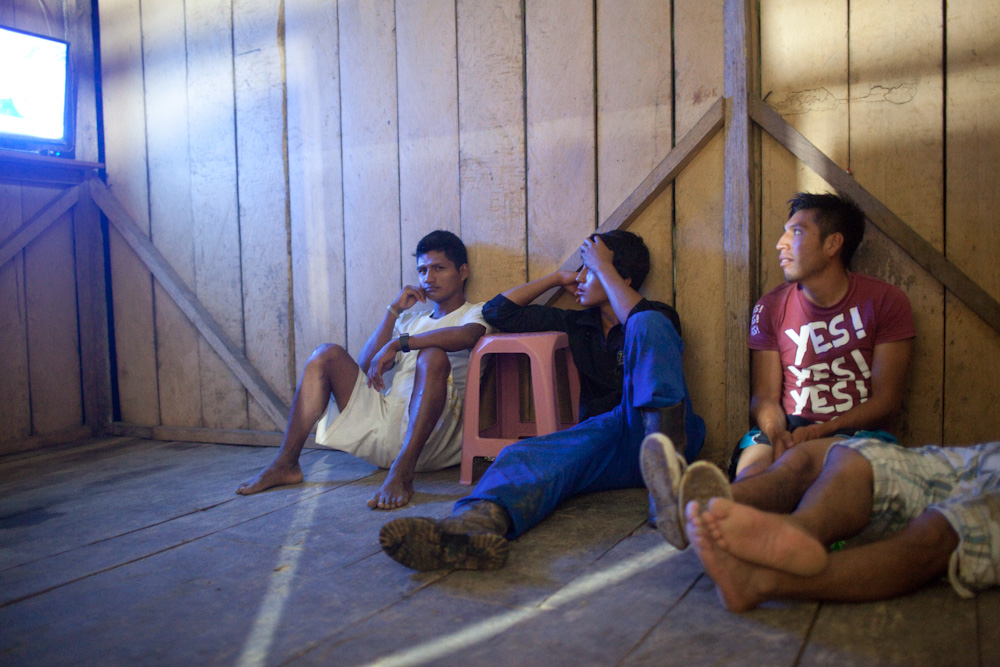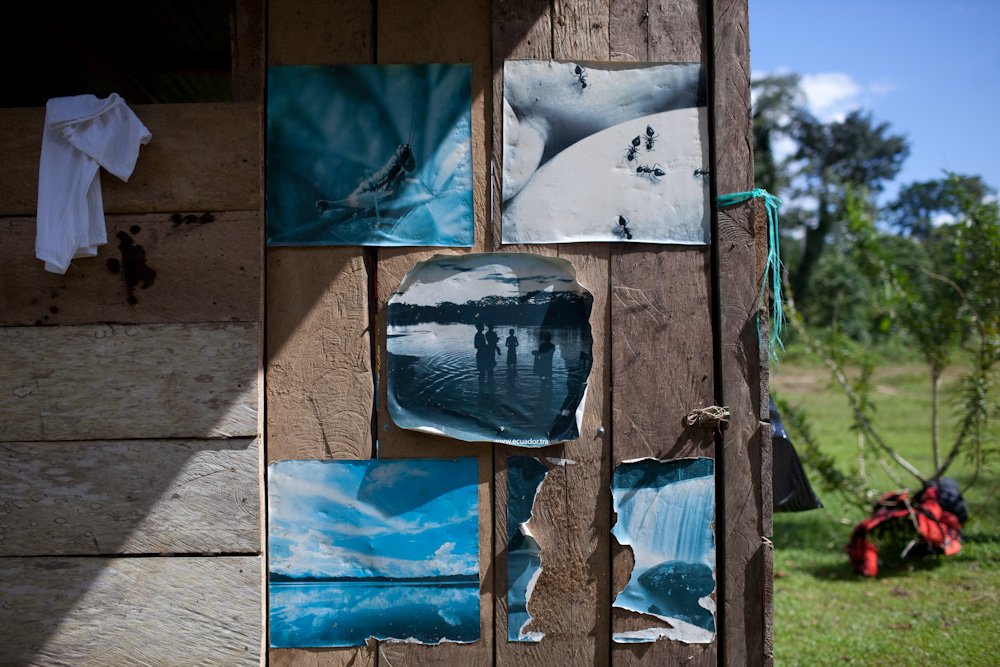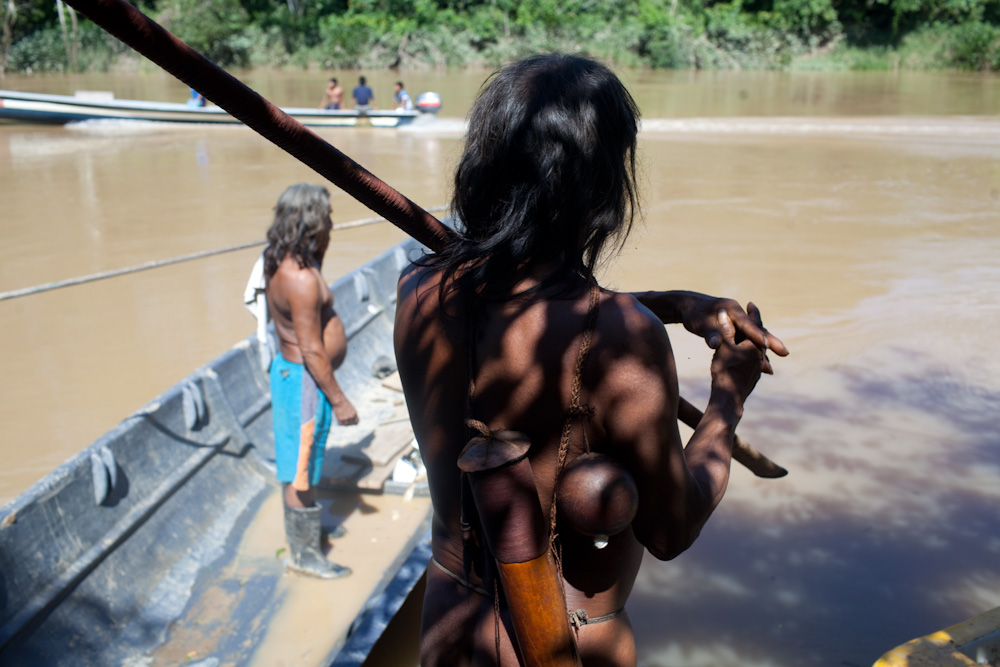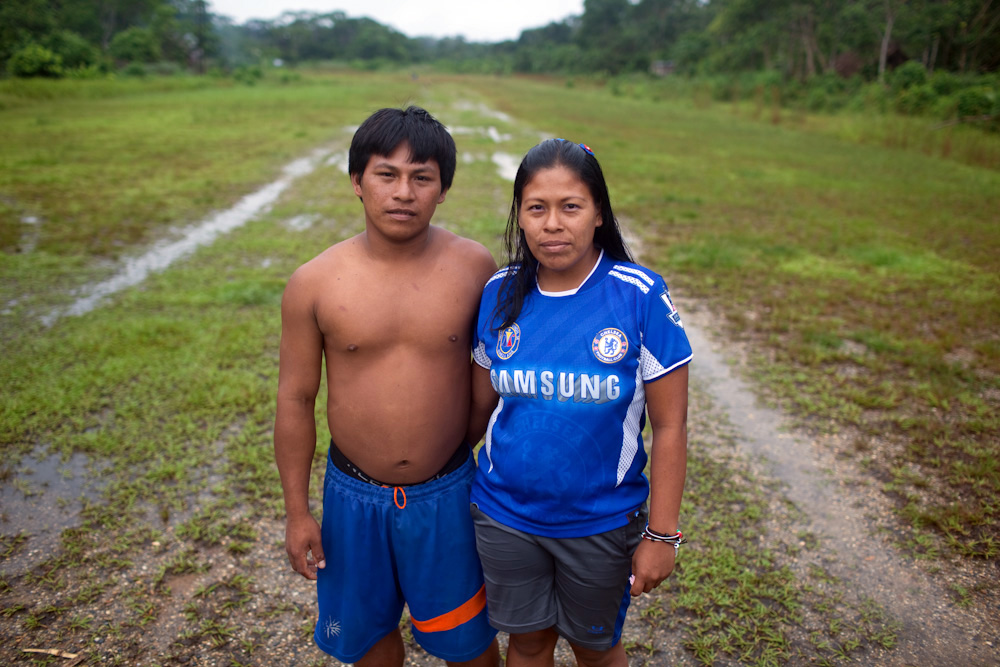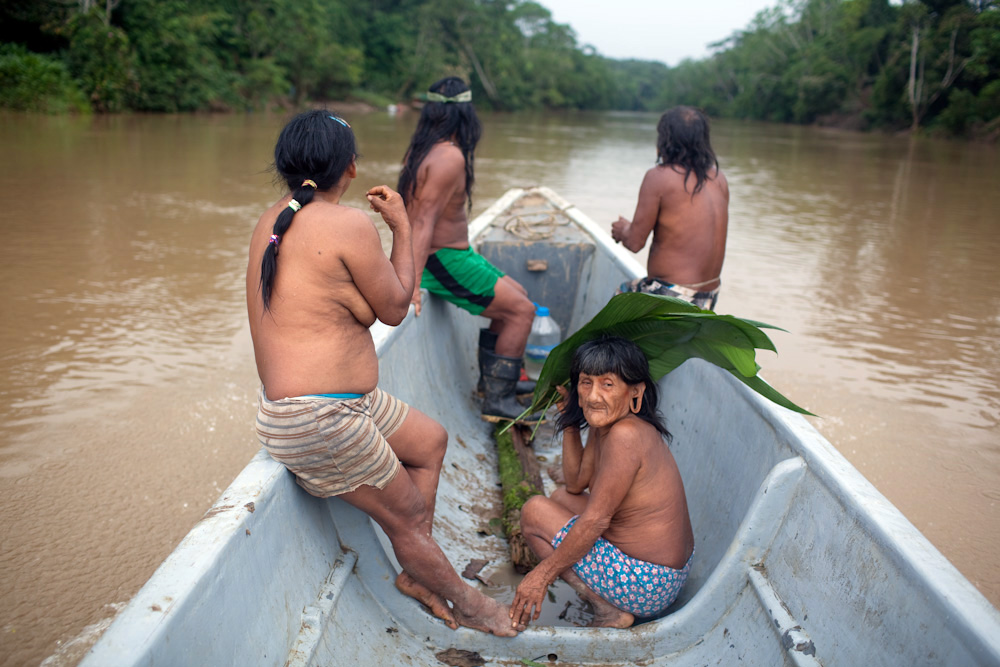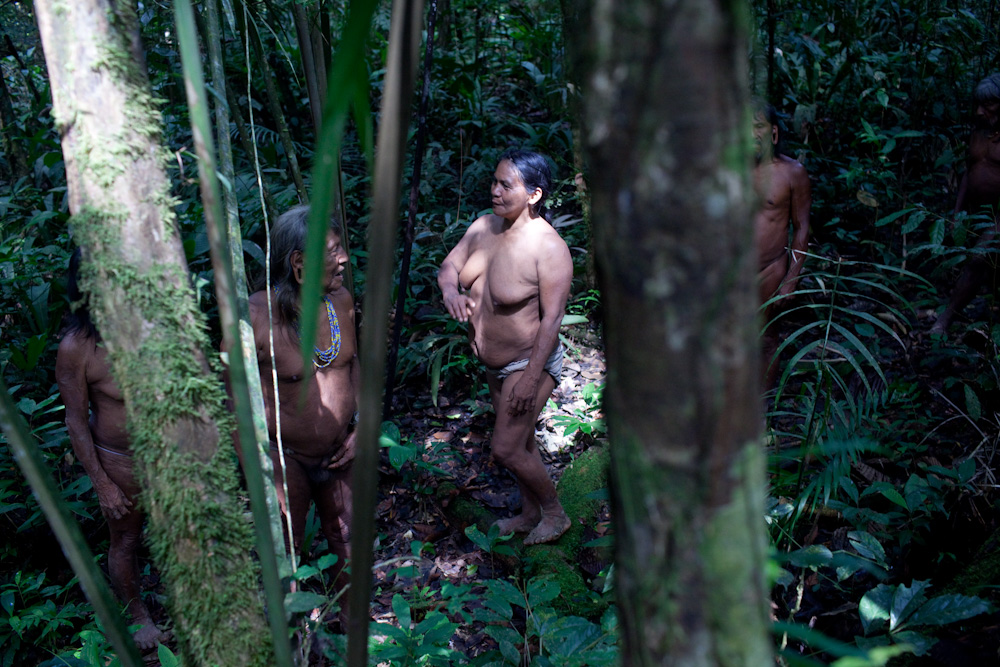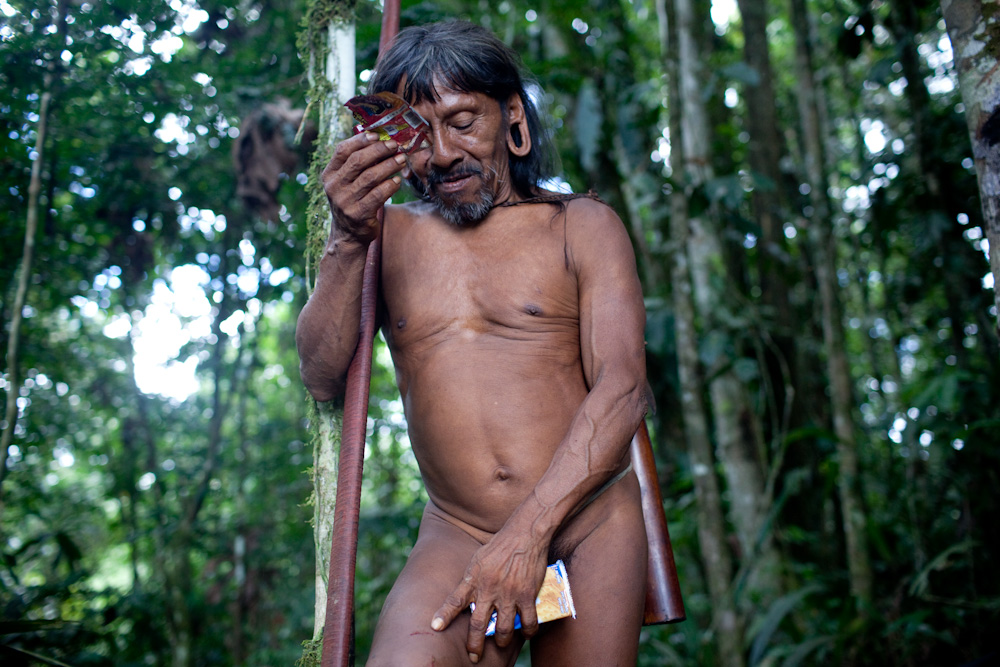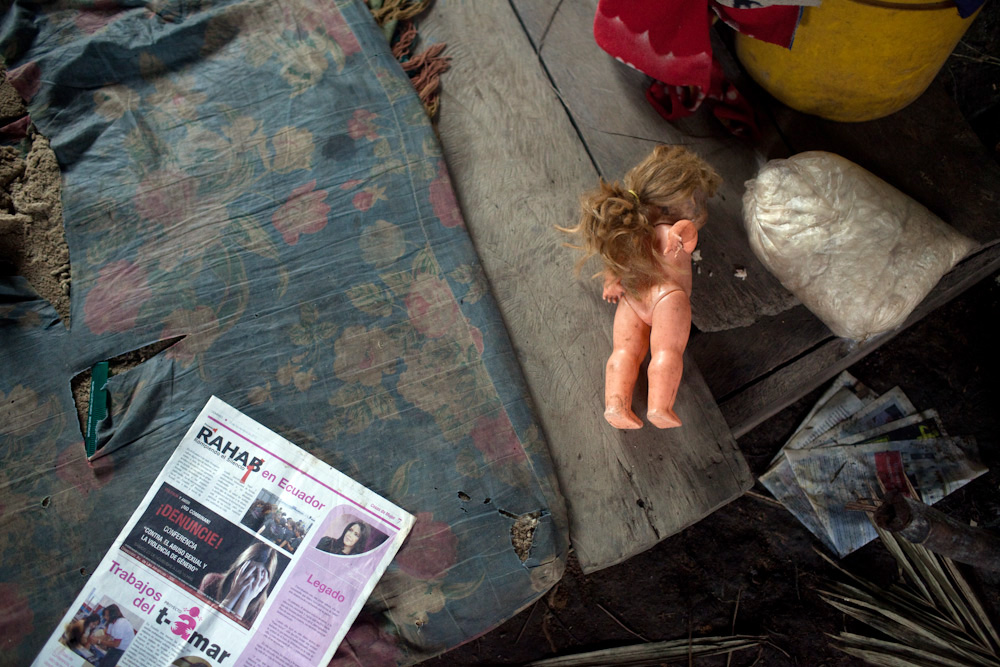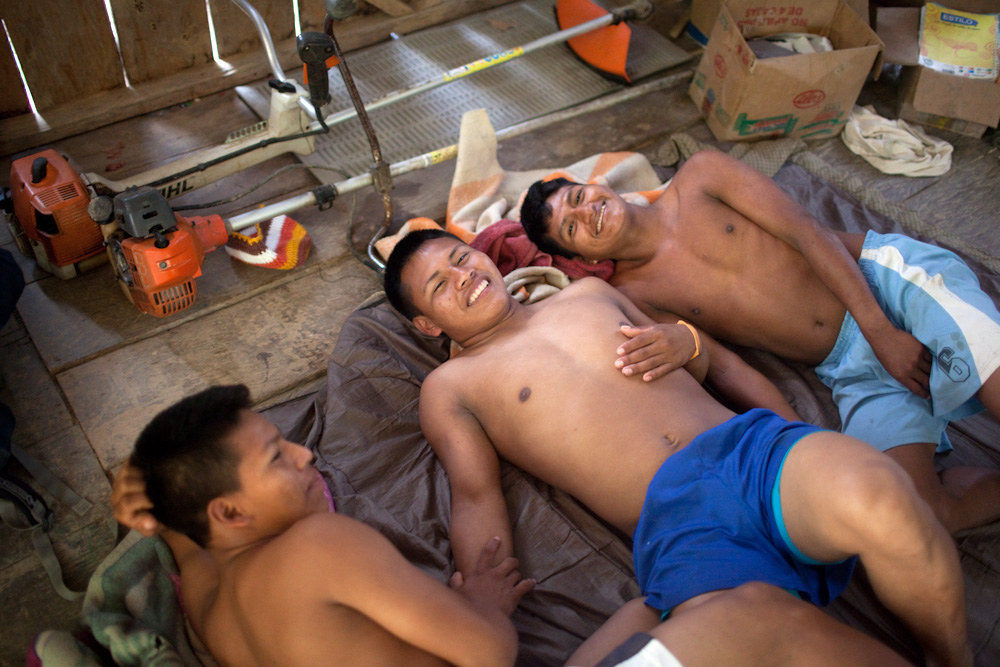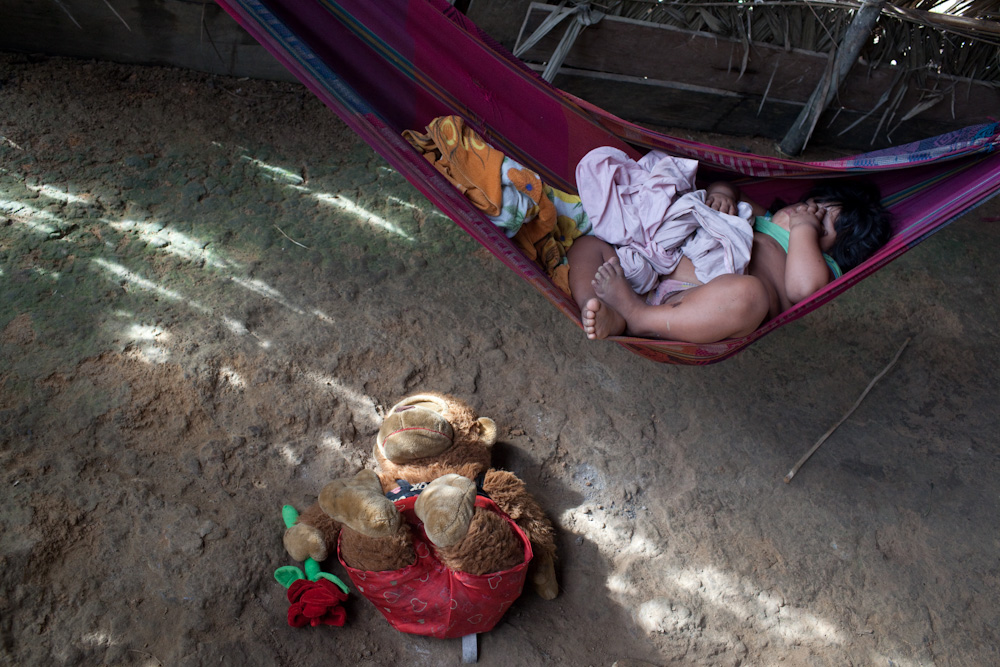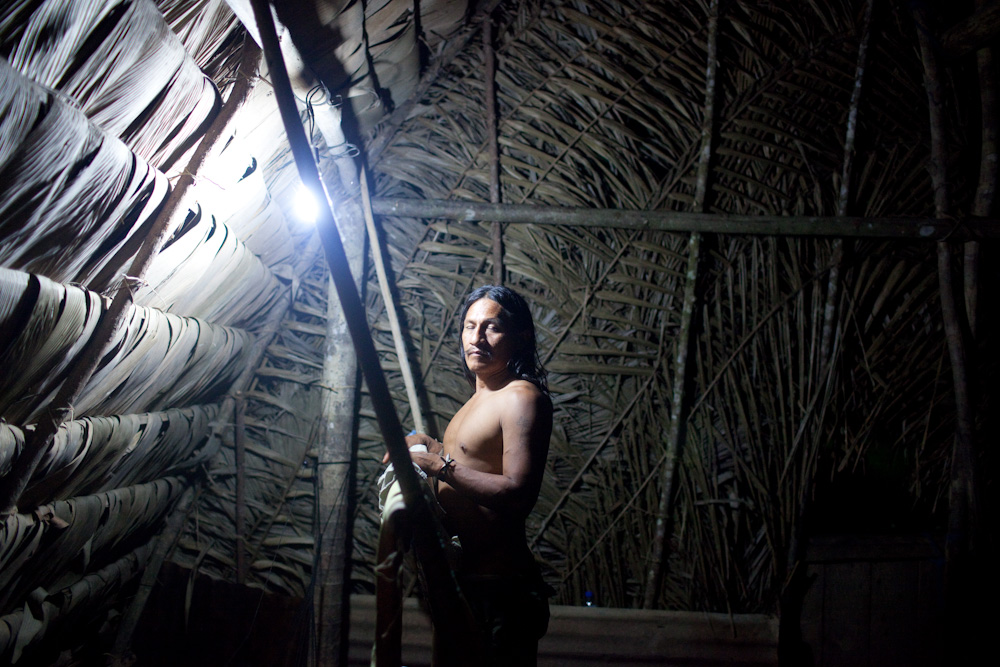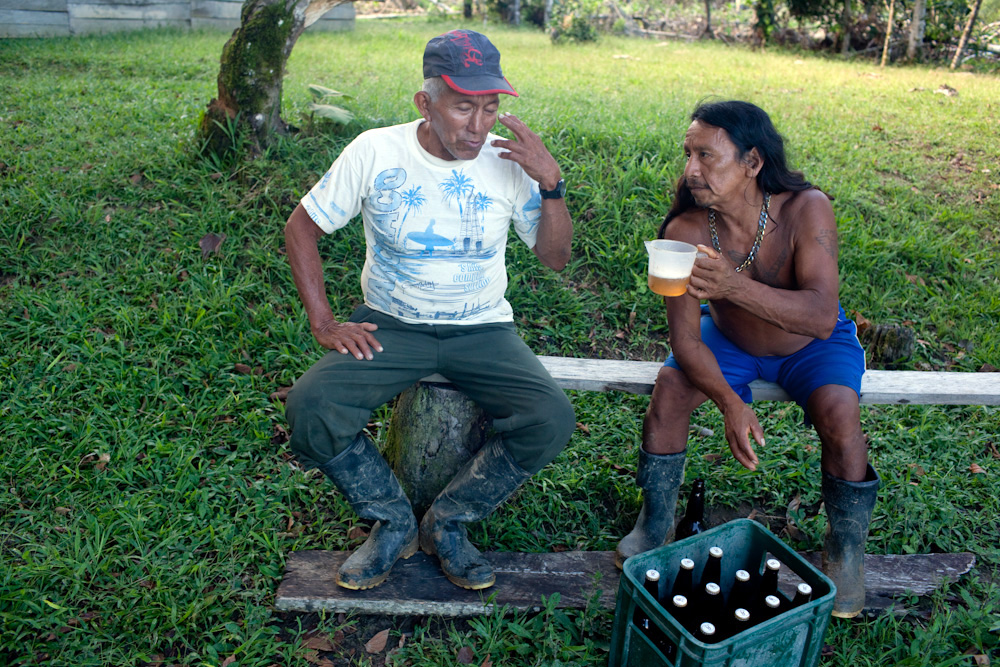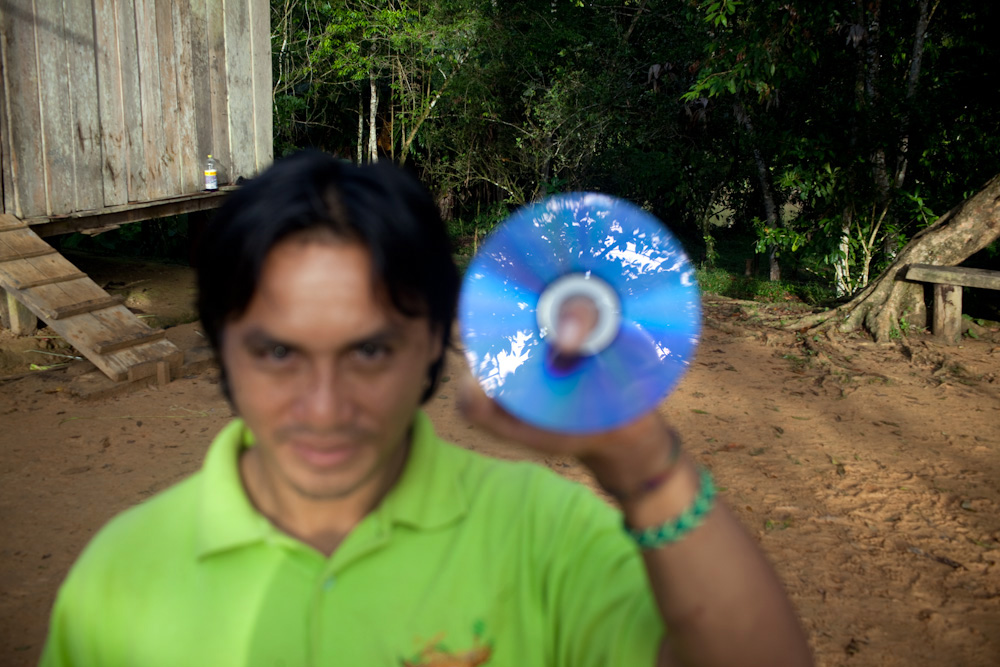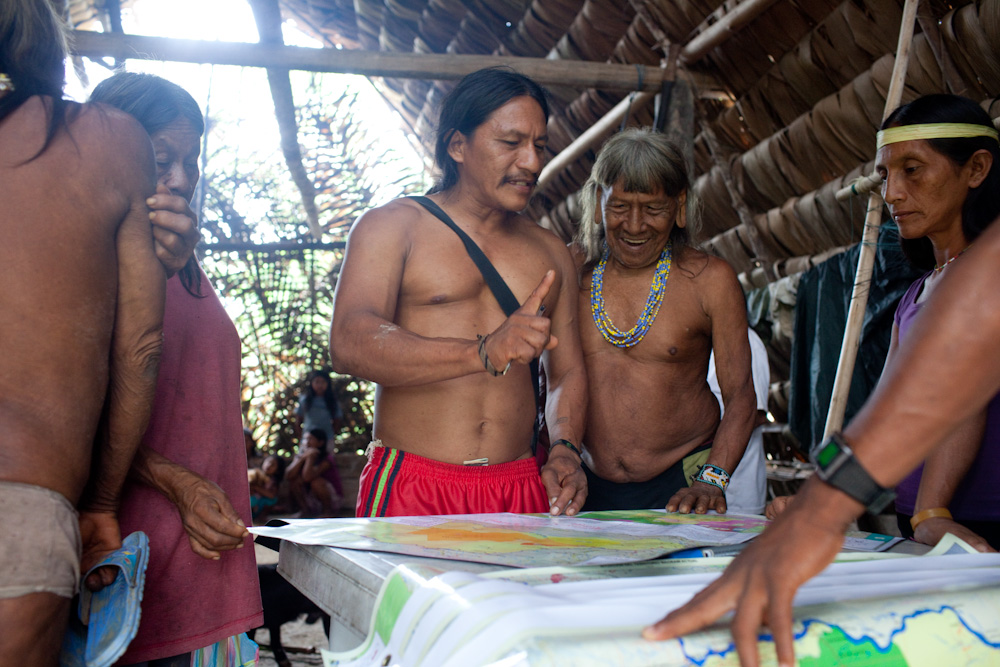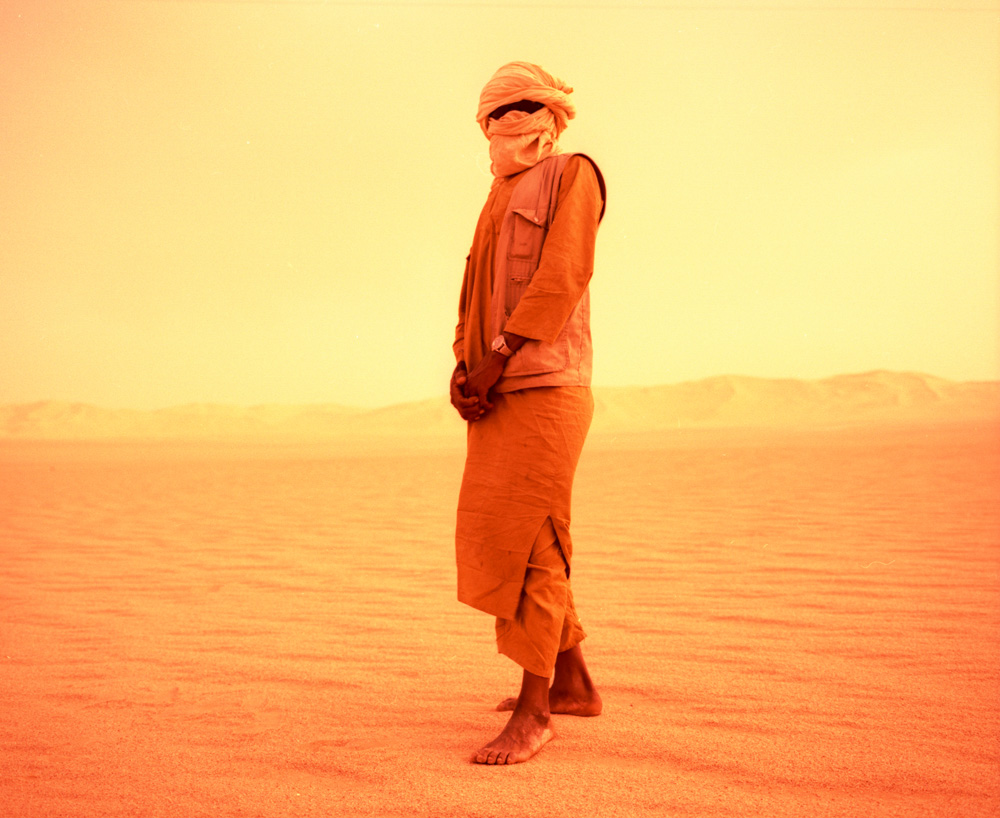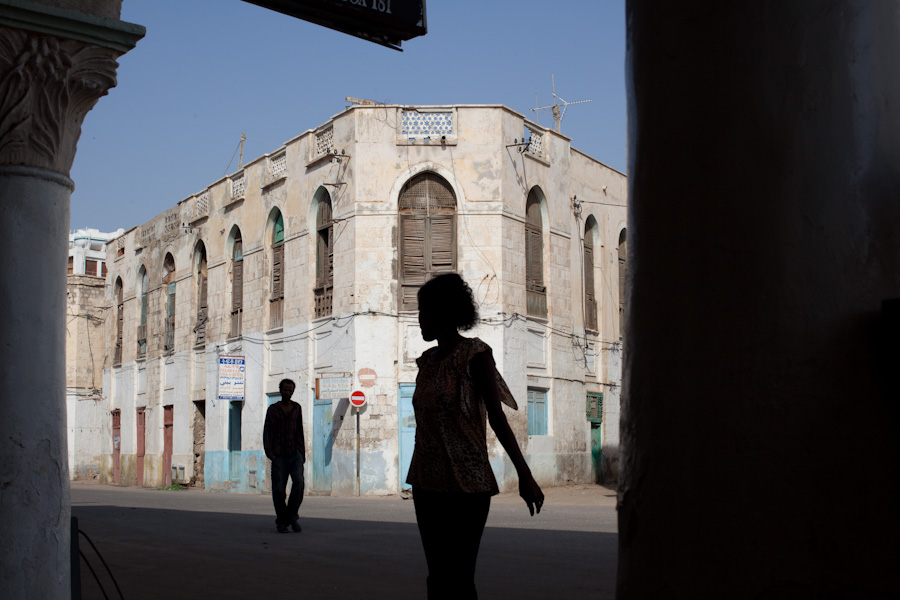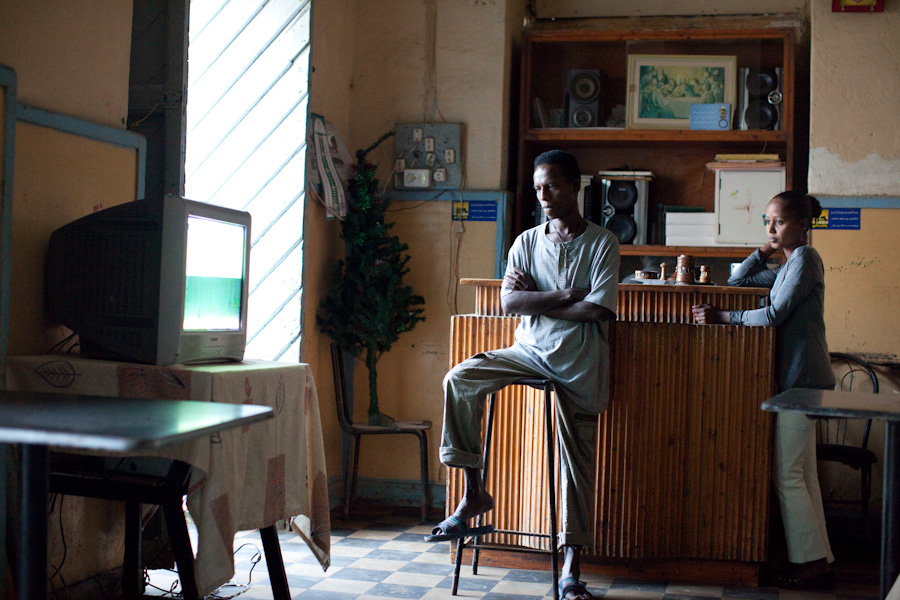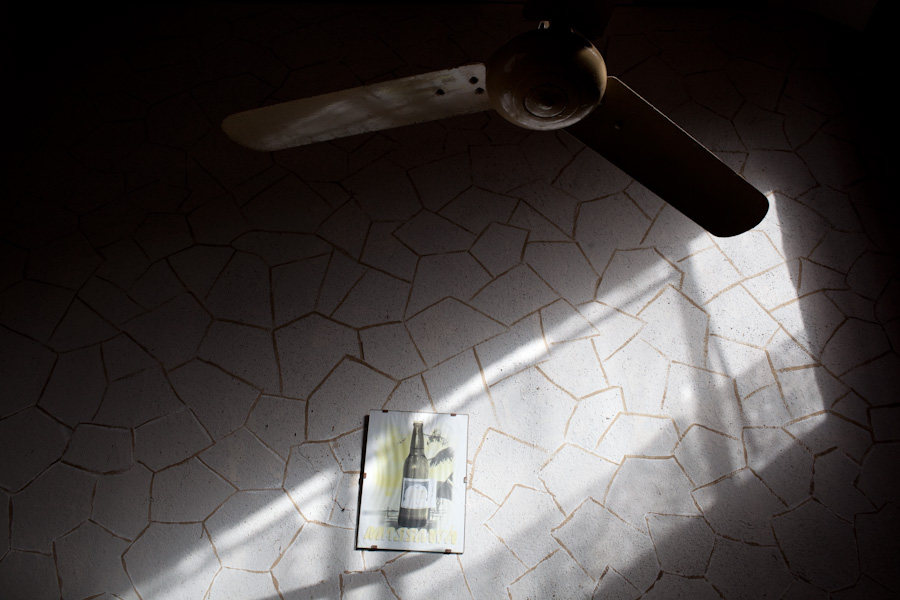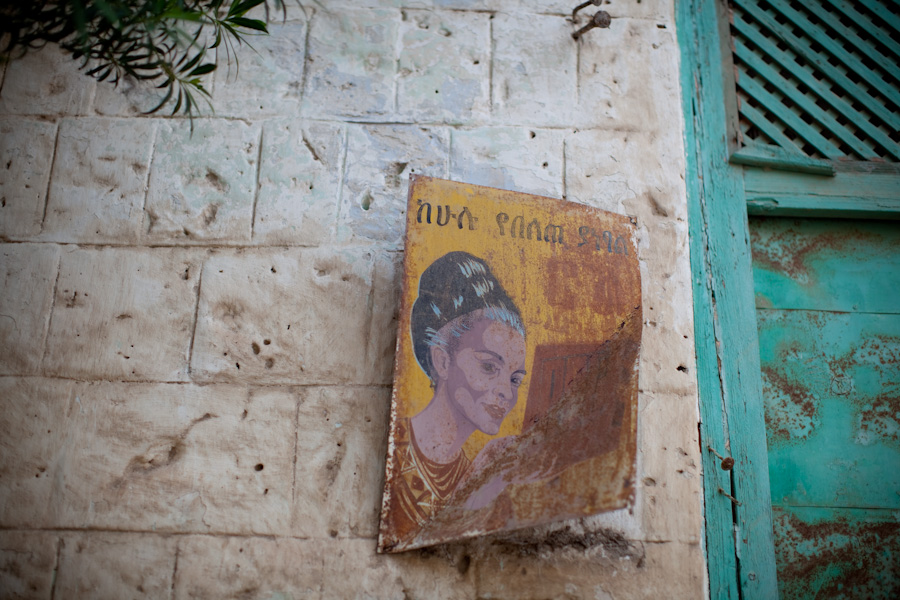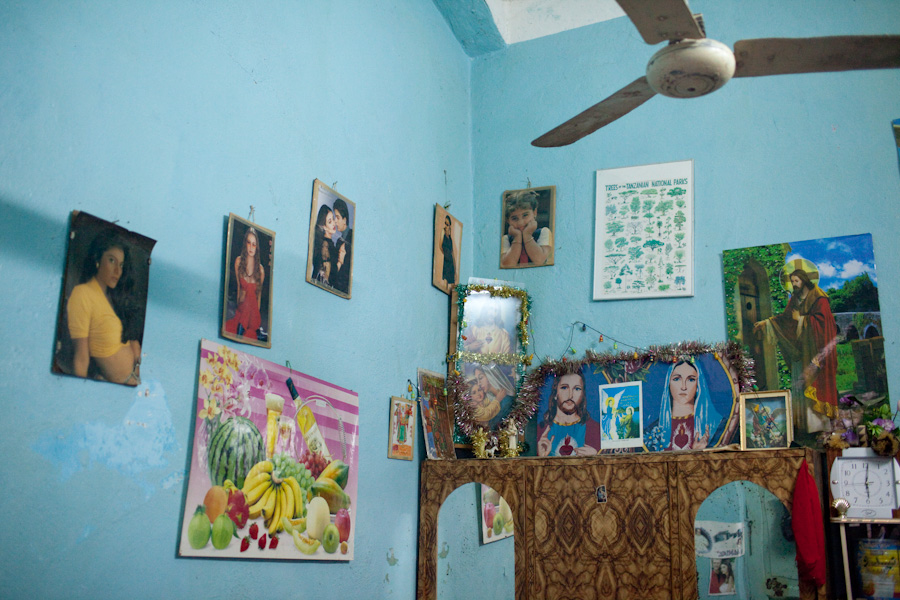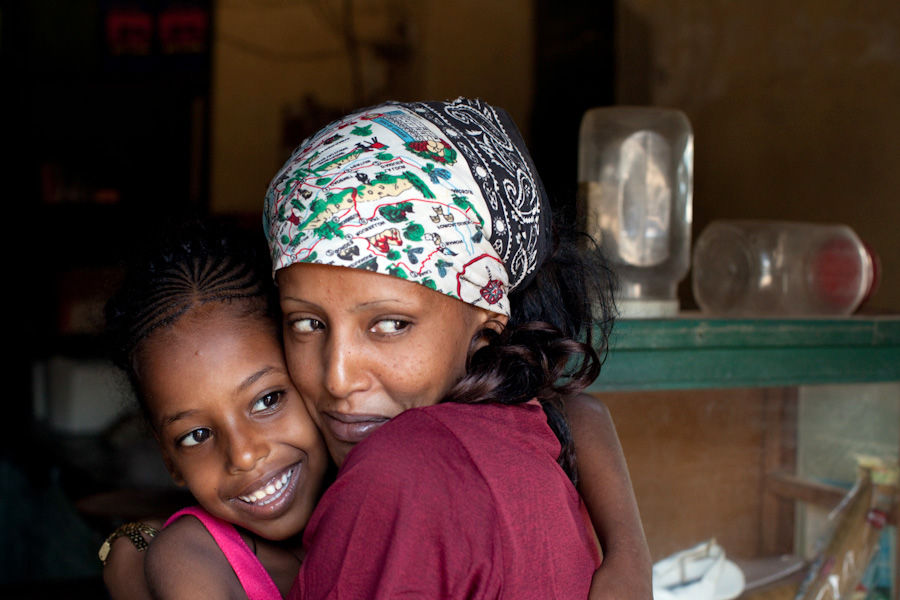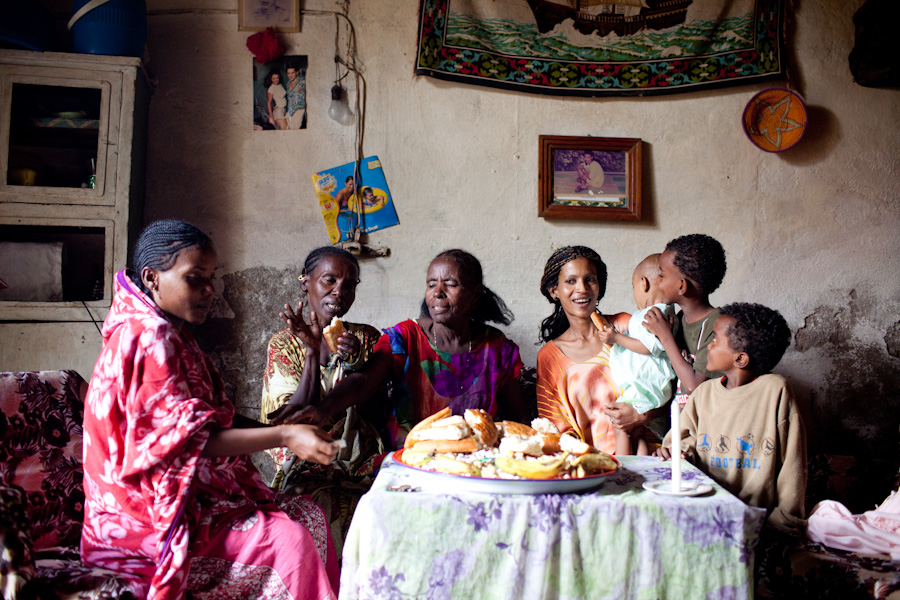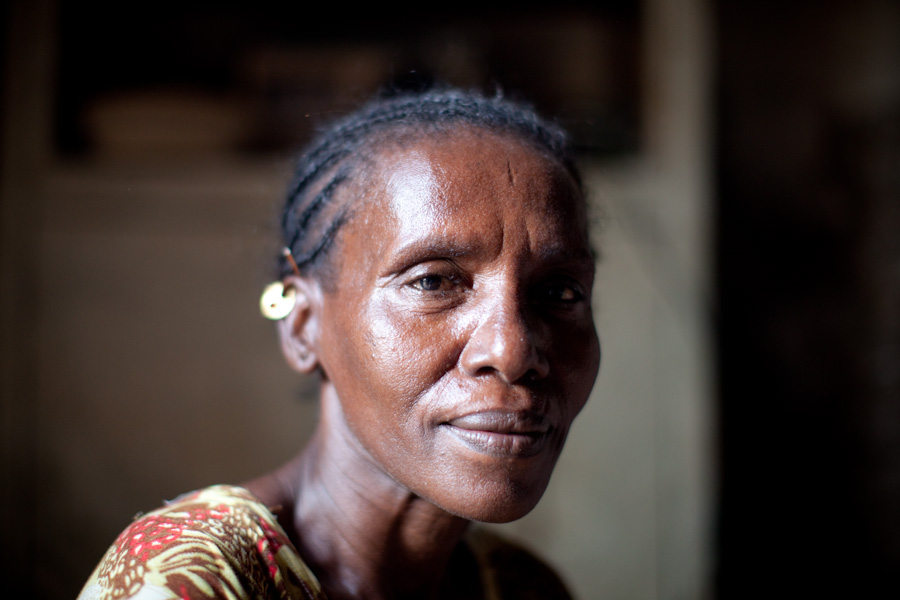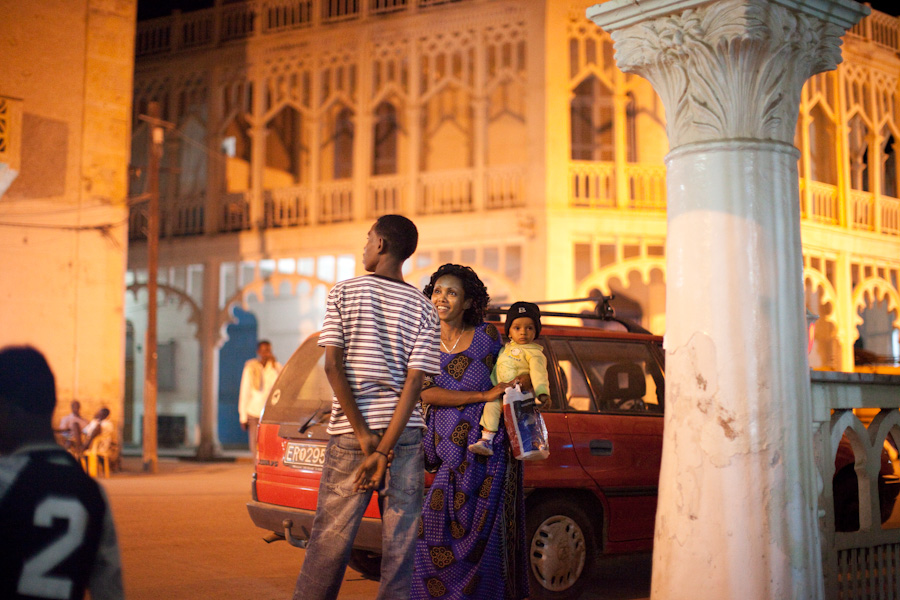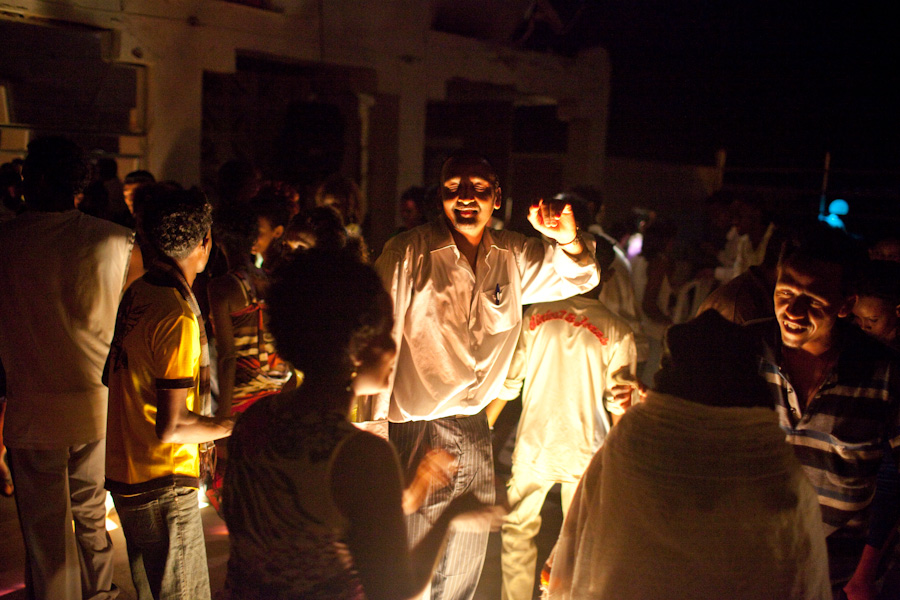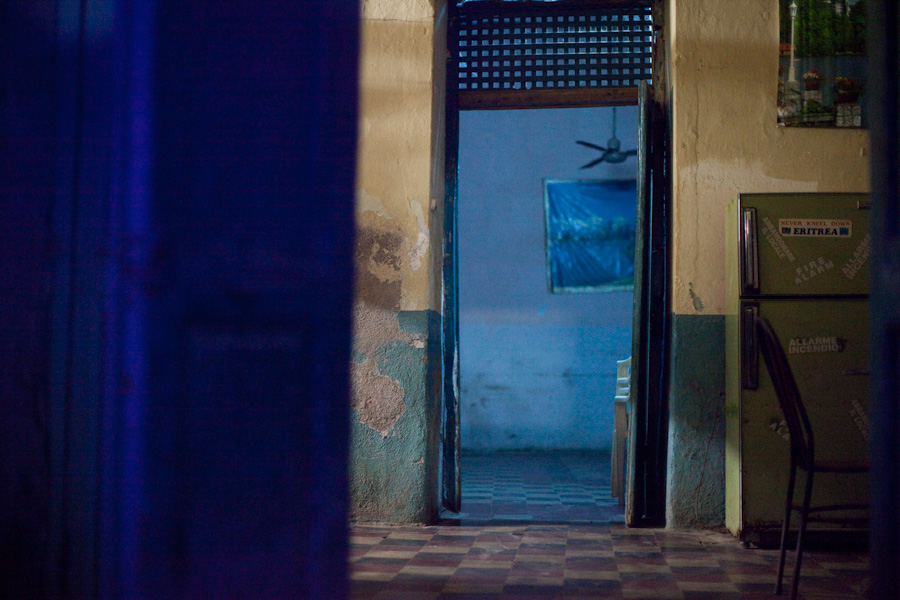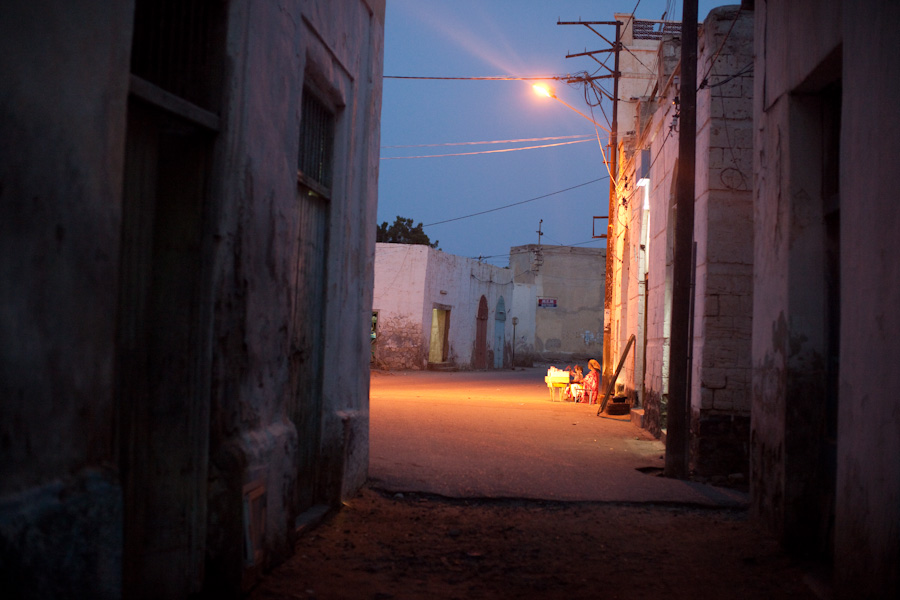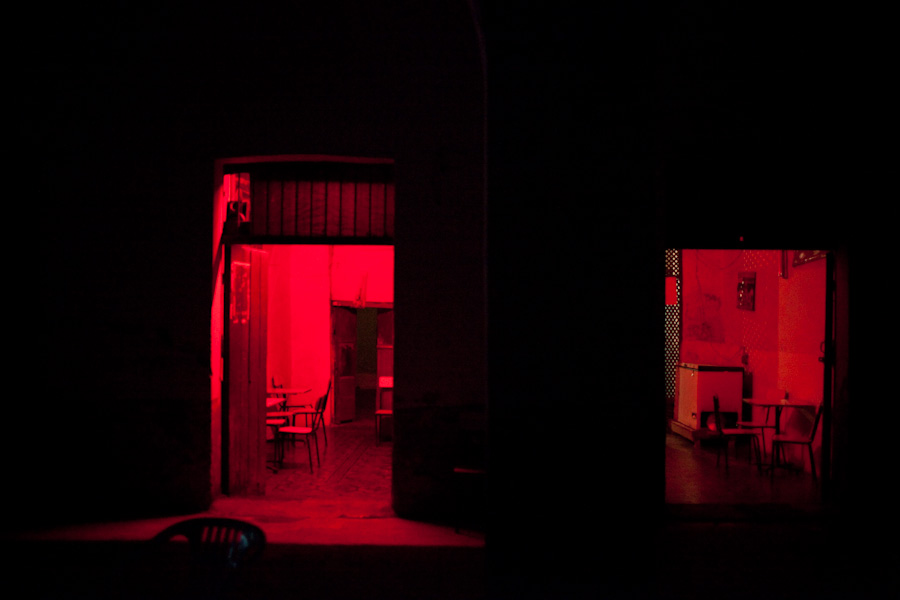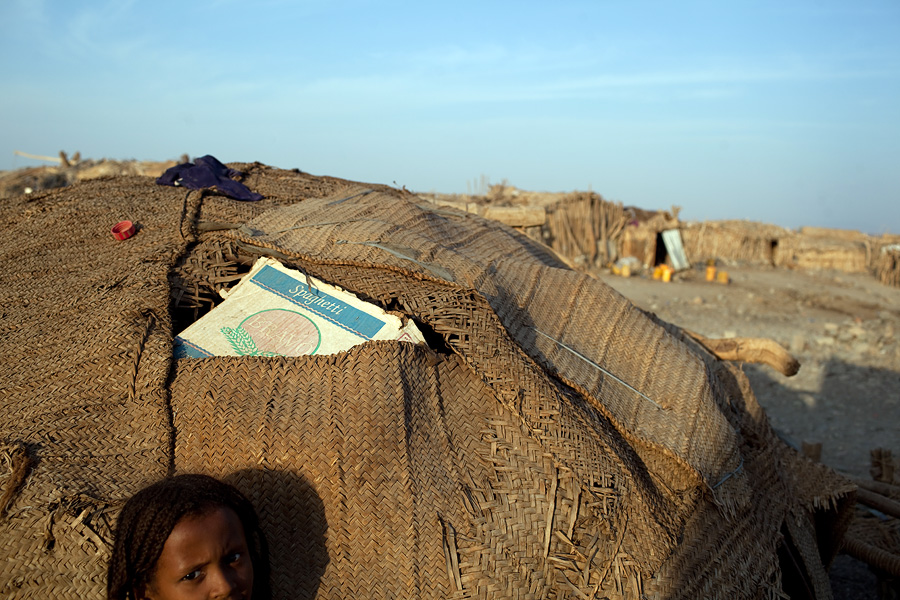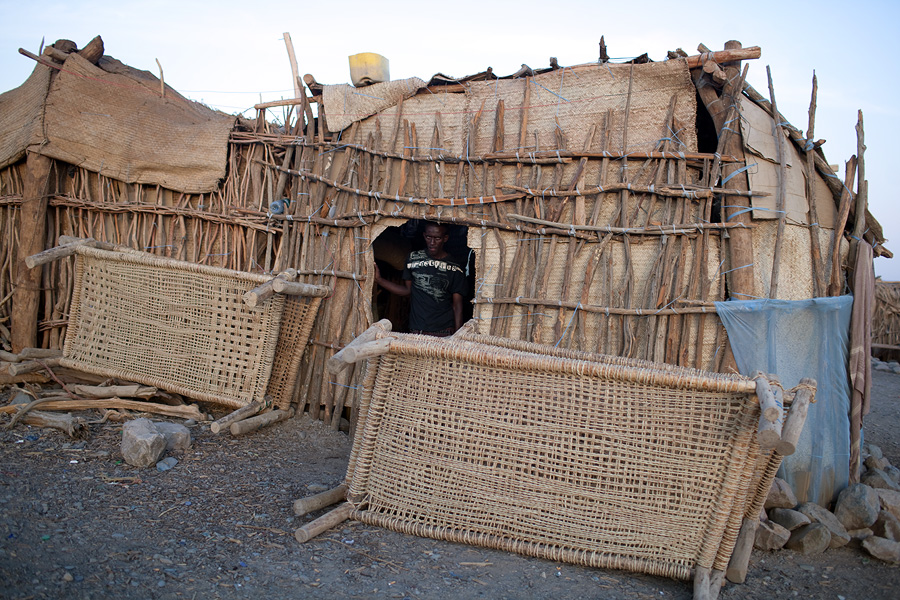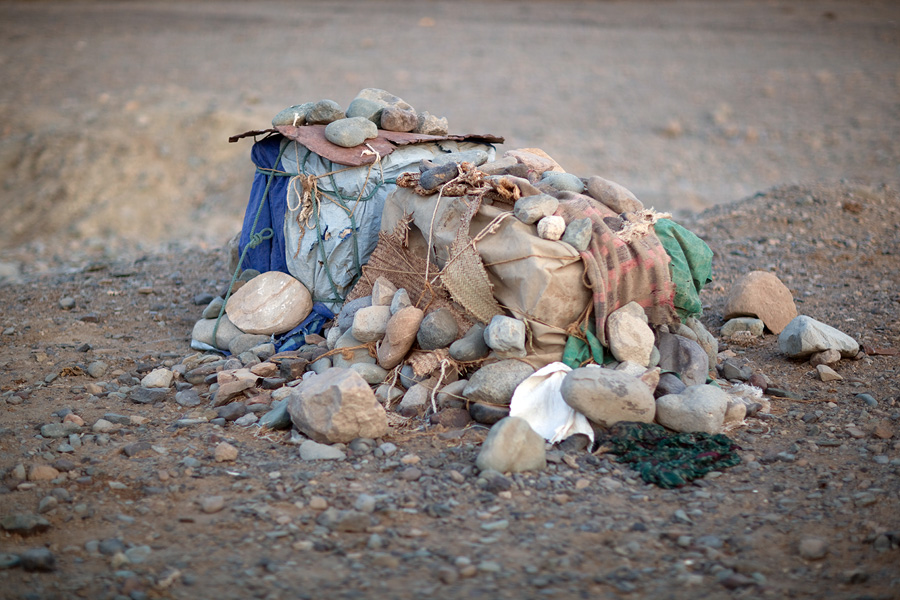Pierdalnął piorun. Bardzo blisko, bardzo głośno. Jedyne dziecko, które zaczęło beczeć, pierwszy raz w trakcie naszego tutaj pobytu, to upośledzona, gruba córka Penti, jednego z liderów tej spoleczności.
…
Lightning stroke. Very close, very loud. The only child which started to cry, first time during our stay here, is handicapped, fat daughter of Penti, one of Huaorani leaders.
Leżę w hamaku, i tak sobie myślę o tych wszystkich rozwrzeszczanych dzieciakach w pociągach, sklepach, na ulicach Europy, myślę o spokoju w ludziach tutaj, i o wkurwie i nieżyczliwości i nerwach które znów przywitają mnie po powrocie. A może to oznacza, że “u nas” większość rozpieszczonych, odżywianych śmieciowym żarciem bachorów, na które chucha się na każdym kroku, jest upośledzona, jak córka Penti ?
…
I am in my hammock and I keep thinking, about all those spoilt, shrieking kids in trains, malls and streets of Europe, I keep thinking about calm of people here in the jungle, about irritation and frustration that await me when I come back home. Perhaps it means that backhome most of those brats, treated as little kings and fed with junk food, they are handicapped as Penti’s daughter?
A może my wszyscy, z wadami postawy od siedzenia przed kompem, z nadwagą, słabym wzrokiem, nerwami, depresją jestesmy upośledzeni względem tego, czym moglibysmy być. Zmiany oczywiście są możliwe. Od kilku lat, kiedy zacząłem świadomie budować swój styl życia, kiedy zacząłem unikać smakołyków przemysłu farmaceutycznego, kiedy odstawiłem przemysłowe mięso i alkohol, skończyły się kace, ciężkie kupy, zimowe przeziębienia, przeciagający się zły nastrój, pojawiło się więcej lekkości. Ale nadal, kiedy wracam do matki Europy, w smrodzie bąków z przetworzonego żarcia, w ściemie telewizyjnej reklamy, w transie centrum handlowego, w zalewie plastiku , czuję że coś tu śmierdzi, a smród rozprzestrzenia się na cały świat.
…
Or perhaps we all, with spines deformed from hours of office slavery, overweight, shortsighted, stressed out, depressed, unbalanced, we are handicapped, as compared to whom we could have been. Changes, of course, are possible. It is since a few years that I have begun to live my life consciously, abandoning hard drugs of pharma industry, leaving behind me industrial meat and alcohol, and my hang overs, hard shit, winter flu, bad moods were gone, and strange lightness of being came to me more and more often. But still, when I come back to mother Europe, in the farts generated from processed foods, in the bullshit of TV commercials, in the trance of shopping malls, in flood of plastic, I feel something stinks, and that smell spreads all over the world.
W dzień naszego przyjazdu do Bameno nadpływają także towary dla “krajowców” – plastikowe zabawki, śmieciowe żarcie, a za nimi doktor, szczepionki, lekarstwa. Zarazem przyczyna jak i plaster na nowe choroby. Bożonarodzeniowe prezenty od grubych Amerykanów, fanatycznych protestantów, którzy niczym uparte czerwone mrówki próbują wleźć ze swą misją w każdy zakątek tropikalnego lasu, od Papui Nowej Gwinei po najdalsze wioski Amazonii, im bardziej dziewiczy teren, tym lepiej, bo tu przecież wciąż nie słyszeli o Jezusie i jego prezentach. Mechanizm jest dokładnie ten sam, który obserwowałem na plemiennych terytoriach wschodniego Bangladeszu ( http://blog.swiatoslaw.com/?p=765 ) , Jezus to ten co ma gadżety i słodkie gówienka, więc warto trzymać z nim sztamę, a śmiesznym spoconym różowym panom powiedzieć to, co chcą usłyszeć.
…
On the day of our arrival to Bameno, loaded boat comes with goods for the “tribals”, plastic toys, junk food, and with them, a doctor, vaccines and drugs. At the same time reason and pill for the new diseases. Christmas gifts from fat Americans, fanatical protestants, who, like stubborn red ants try to crawl with their mission in every corner of tropical forest, from Papua New Guinea, to the most remote settlements of Amazon. The more obscure and isolated location, the better it is, as they haven’t heard of Jesus and his gifts here yet. The mechanism is exactly the same I have seen in the tribal hills of eastern Bangladesh ( http://blog.swiatoslaw.com/?p=765 ), Jesus is the white guy with gadgets and sweet stuff, so it makes sense to be his pal, and to tell to these funny sweating pink visitors whatever they want to hear.

